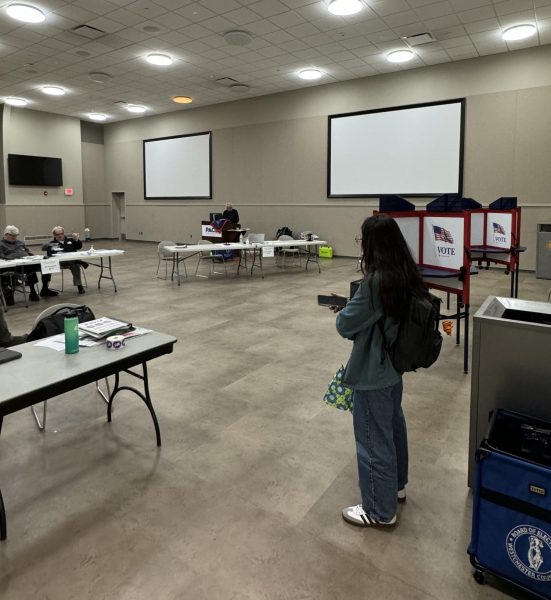Dr. Dan McAdams Presents New Book
April 9, 2014
Northwestern University’s department chair of psychology and professor, Dr. Dan McAdams, held a lecture on his recent book, The Redemptive Self at on the Pleasantville campus last Thurs., April 3.
The renowned educator began his talk with what his research boils down to, generativity.
“Generativity is an adult’s concern for, or commitment to, the well-being of future generations,” McAdams said.
Generativity score, a numerical figure, is calculated based on adult participation in activities such as family involvement, continued education, volunteer work, moral development in children and the self.
The professor expressed that the “personal narratives,” or stories of peoples’ lives, are what dictate who they are; they become their narrative identity.
For his research, McAdams conducts life story interviews and derives his conclusions based on six key components: Life chapters, key scenes, important characters, future script, beliefs and values, and life theme.
“Imagine your life, as if it were a novel,” McAdams said.
The guest speaker also shared an anonymous story which exemplified what he called, “redemptive sequence.” This is when a person shares an emotionally negative incident in their life that ended up having a positive effect. It’s not about immediate, ironic gratification; it’s about the years later in life, turning it into a learning experience.
According to McAdams, there are five themes of a life story and redemption. The first is early advantage, which are those who were fortunate enough to have a great teacher or mentor growing up, or those having more money than most in their area. The second is the suffering of others; this is when people talk about other peoples’ problems very often. People feel “sensitivity to injustice.” Moral depth and steadfastness, redemption, and future growth and pro-social engagement follow as the last three themes.
The lecture then touched on how America differs in what it most identifies with, in terms of the redemptive narratives. According to research, America’s favorite redemptive narratives are about recovery, liberation, upward social mobility, and atonement.
“It was interesting as a psychology major who hopes to help people navigate to see their stories and mold them into stories of redemption; specific research for the specific cultures and different subspecialties was fascinating,” said senior psychology major Foluso Soniregun, regarding discussion pertaining to Americans and gender differences.
McAdams then plugged his new book, George W. Bush and the Redemptive Dream. The book expounds upon the struggles that our former president experienced that most Americans are unaware of. His book talks about how Bush tried constantly to be like his father, George H. W. Bush, and consistently failed to do so.
After the lecture Professor of Philosophy Lawrence Hundersmarck, PhD, Dyson Dean Nira Herrmann, PhD, Associate Dean of Dyson Adelia Williams, PhD, Chair of the Psychology Department Ross Robak, PhD, New Assistant Professor Angela Legg, PhD, and Director Linda Anstendis, PhD formed the panel that discussed different viewpoints of The Redemptive Self based on the professors’ varying areas of expertise.
The crowd also brought up that Americans approach generativity in a different way. Anstendis bounced off of McAdams’ idea that Americans have to volunteer because their government is lacking in that way.
“We tend to be the heroes in our own story,” said Anstendis, speaking on how Americans take initiative to their generativity.
“When you share your story you share to the other [person] the most personal part of you,” Hundersmarck said.
The discussion then took a turn towards narratives correlating with different levels of intimacy; intimacy was stated to be what comes of gossip.
“I find that there’s a lot of gossip at Pace,” Dr. Hermann said.
There was roar of laughter among the audience of Pace students and faculty.












